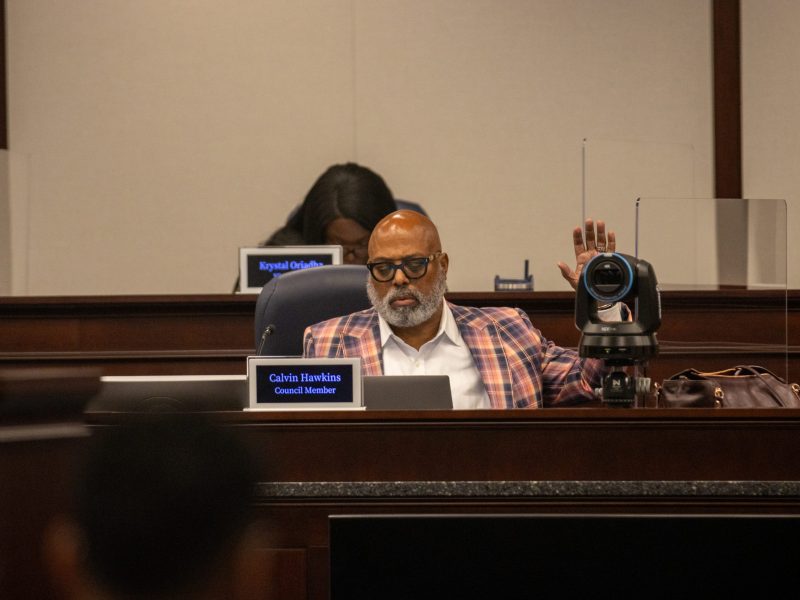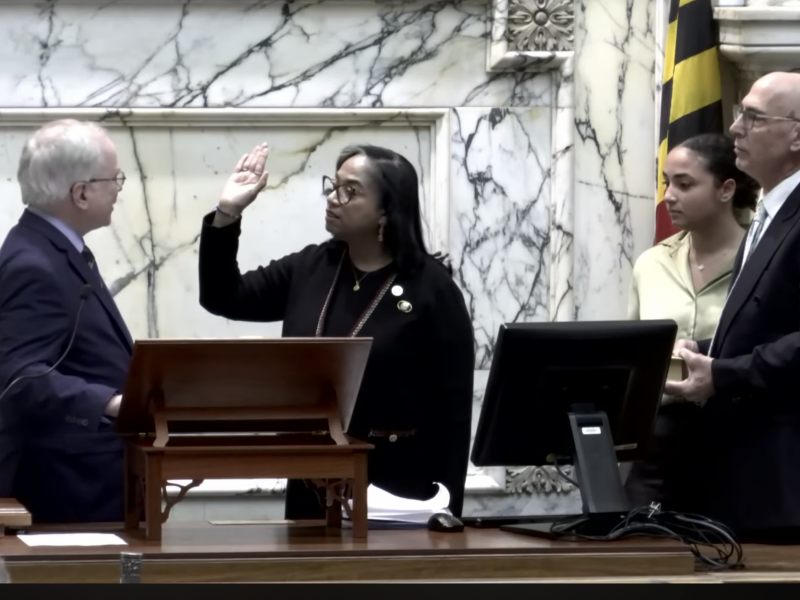The Maryland General Assembly amended a bill during the final minutes of its 2025 legislative session that would have prevented local law enforcement from working with federal immigration enforcement agencies.
The Maryland Values Act passed less than an hour before the session came to a close at midnight on April 7 after being heavily amended by the state Senate. The final version of the bill prohibits federal immigration enforcement agents from accessing and operating in “sensitive locations” not open to the public in places such as public schools, libraries and healthcare facilities.
But the original draft of the bill would have prevented local law enforcement officers from entering into 287(g) agreements with U.S. Immigration and Customs Enforcement, which would allow local officers to carry out immigration enforcement actions.
The final bill, which passed both chambers mostly along party lines, also includes some measures from other pieces of immigration-related legislation proposed this session, including the Protecting Sensitive Locations Act and the Data Privacy Act.
The Data Privacy Act, which failed to advance in the house, would have prevented federal immigration enforcement agents from accessing Maryland residents’ personal information without a warrant.
[4 bills Gov. Wes Moore proposed that failed to pass the 2025 Maryland General Assembly]
“There’s no hard and fast warrant requirement as we had in the prior bill,” Sen. William Smith (D-Montgomery), the judicial proceedings committee’s chair, told lawmakers April 7. “None of that exists in this bill.”
Debate over immigration legislation during the session rose amid U.S. President Donald Trump’s continued deportation threats and executive orders targeting visas and immigration.
The Maryland Values Act includes some less restrictive data protection regulations than those previously proposed during the legislative session, Smith, the primary Sensitive Locations Act sponsor, told lawmakers on April 7.
The bill will require government entities to develop procedures to protect and prevent the resale of personal information and data released by the government, according to the amended text.
“Those units of government, state and local government, have to develop policies that will protect to the greatest extent possible the personal information of Marylanders,” Smith said.
The bill will also require the state’s attorney general to develop guidance for immigration enforcement in sensitive locations.
Sen. Clarence Lam (D-Anne Arundel and Howard), sponsored the Data Privacy Act.
“We’re certainly in unprecedented times,” Lam said at a committee hearing for the bill in February. “Thousands of Marylanders are fearful and anxious and scared.”
Earlier this month, a group of more than 50 organizations across the state, led by the Council on American-Islamic Relations’ Maryland chapter, called on the legislature to pass increased data protections for students on college campuses.Trump has threatened to deport college students across the country because of their participation in protests criticizing Israel’s military offensive in Gaza since Hamas’ Oct. 7, 2023 attack, the Associated Press reported. Israel’s military forces have killed more than 51,000 Palestinians in Gaza after Hamas killed about 1,200 people and took about 250 people hostage in its attack, according to the Associated Press.
[Federal government revokes visas from 7 people at UMD]
CAIR welcomed the “critical progress to safeguard immigrant communities’ and students’ rights” through the Sensitive Locations Act, but was disappointed by the removal of the provision that would have prohibited 287(g) agreements, the organization wrote in a news release on April 10.
Smith said the data protections in the Maryland Values Act will apply to all government entities seeking Maryland residents’ personal information, which includes ICE.
Republicans in the state Senate expressed gratitude for the last minute changes to the bill that protected 287(g) agreements.
“It’s good that there will not be an assault on a program that has really had tremendous success with processing people who are here illegally that then are arrested for crimes,” Sen. Justin Ready (R-Frederick and Carroll), the senate’s minority whip, said.
Maryland Gov. Wes Moore has until May 27 to sign or veto the legislation.



